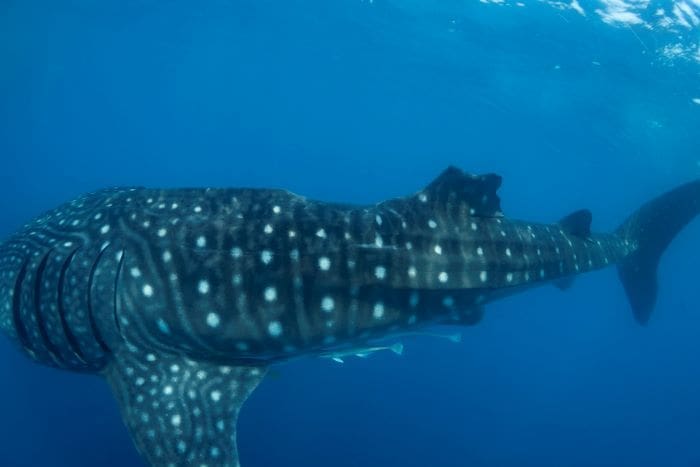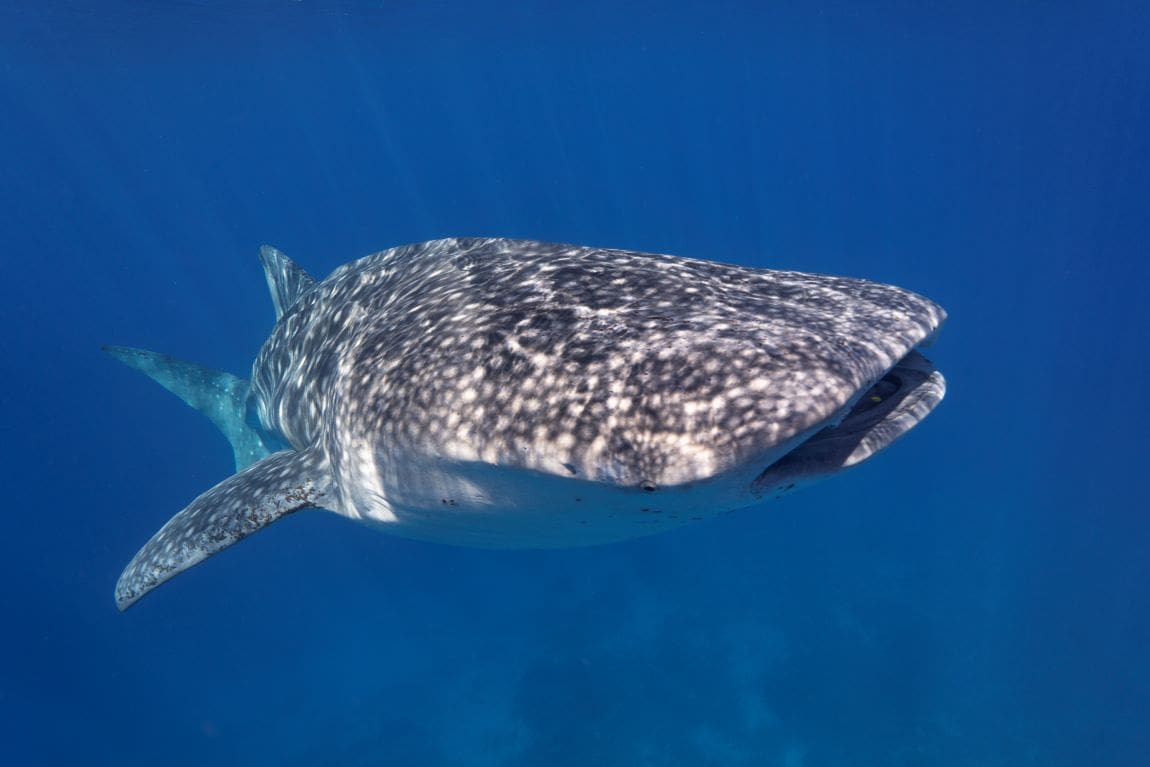Global warming is reshaping ocean habitats, posing new threats to the endangered whale shark as it pushes the species into waters frequented by large ships, according to recent research published in Nature Climate Change.
In a study led by scientists at the University of Southampton and the Marine Biological Association (MBA), researchers found that increased ocean temperatures are likely to alter whale shark habitats, bringing these massive fish into shipping lanes at unprecedented levels. The study’s models suggest a staggering 15,000-fold increase in the likelihood of co-occurrence between whale sharks and large vessels by the century’s end.
“These shifts in the whale sharks’ habitat were most extreme under high emission scenarios,” says Dr. Freya Womersley, lead author and MBA Postdoctoral Research Scientist at the University of Southampton. “A global reshuffling could lead to core habitat losses in some areas, as well as increased co-occurrence with shipping traffic as oceans warm and other variables change.”
Renowned for their size, whale sharks are the largest fish in the world and are highly responsive to shifts in temperature. Unfortunately, their significant mobility may also be a factor in their vulnerability to ship strikes, a common occurrence that can result in serious injuries or death.

The researchers used a combination of satellite tracking data and climate models to predict how whale shark habitats might shift under three climate scenarios, spanning from continued fossil fuel reliance to a sustainable development pathway.
Results from the study reveal the potential for core habitat losses of over 50% in some national waters by 2100 if global emissions remain high. Asia’s coastal waters may see the most substantial losses, while certain European regions could see gains in core habitat under more sustainable warming scenarios.
Co-author Professor David Sims emphasizes the importance of climate action: “The shifts we predict are likely to be less extreme if we are able to slow warming and mitigate climate change, suggesting that even complex, multi-factor impacts of climate change can be somewhat alleviated by our actions.”
Pairing distribution maps with shipping traffic data, the researchers identified several areas where whale sharks may be forced into heavily trafficked waters. For example, busy shipping routes in the North Pacific off the coast of the United States, the Eastern China Seas near Japan, and the North Atlantic around Sierra Leone are among the many areas likely to experience an increase in whale shark-ship encounters. Conversely, in regions like the Gulf of Mexico, whale sharks may shift closer to coastal waters, reducing the risk of ship collisions.
In all scenarios, the researchers observed an overall increase in co-occurrence, even if shipping traffic remains at current levels rather than expanding by up to 1,200% by mid-century, as anticipated.
Dr. Womersley notes the broader implications of these findings, saying: “We show that climate change has the potential to indirectly impact highly mobile marine species through interacting pressures of humans and the environment. This highlights the importance of factoring climate change into discussions around endangered species management.”
The study underscores the need to address the complex intersections between climate change, marine conservation, and human activity. As ocean temperatures rise, so does the urgency to understand and mitigate these newly emerging threats to endangered species like the whale shark.
***
This research was funded by the UK Natural Environment Research Council (NERC) and the European Research Council (ERC) under the EU Horizon 2020 Programme.
Journal Reference:
Womersley, F.C., Sousa, L.L., Humphries, N.E. et al. ‘Climate-driven global redistribution of an ocean giant predicts increased threat from shipping’, Nature Climate Change (2024). DOI: 10.1038/s41558-024-02129-5
Article Source:
Press Release/Material by University of Southampton
Featured image credit: Gonzalo Araujo




